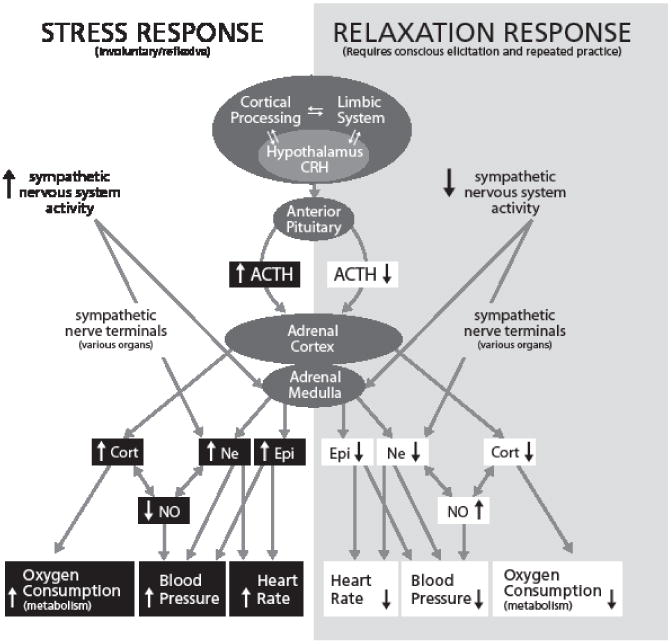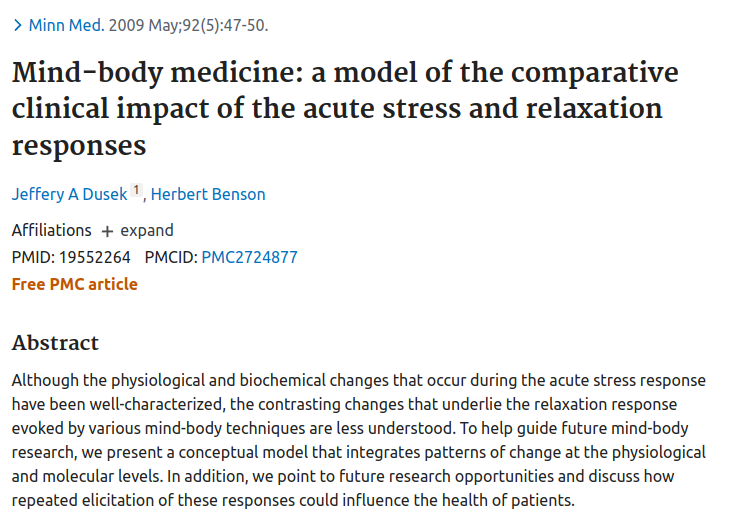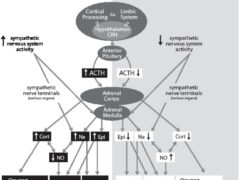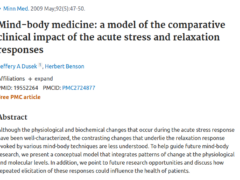Publication
Minn Med.
92(5): 47-50
Abstract
Although the physiological and biochemical changes that occur during the acute stress response have been well-characterized, the contrasting changes that underlie the relaxation response evoked by various mind-body techniques are less understood. To help guide future mind-body research, we present a conceptual model that integrates patterns of change at the physiological and molecular levels. In addition, we point to future research opportunities and discuss how repeated elicitation of these responses could influence the health of patients.
Web and Email Links
Related Listings
Journal
Journal for the Scientific Study of Religion
Clinical observations suggesting a relationship between spiritual experiences, life purpose and satisfaction, and improvements in physical health led to the development of an Index of Core Spiritual Experience (INSPIRIT). Data from 83 medical outpatients showed the INSPIRIT to have a strong degree of internal reliability and concurrent validity. Multiple regression analyses showed the INSPIRIT to be associated with: (1) increased life purpose and satisfaction, a health-promoting attit […]
Journal
Headache, the Journal of Head and Face Pain
PHYSIOLOGIC CHANGES consistent with the decreased sympathetic nervous system activity are present during the practice of a relaxation technique, Transcendental Meditation. The changes consist of decreased oxygen consumption, carbon dioxide elimination, respiratory rate and minute ventilation. Arterial blood lactate decreases markedly. Arterial blood pH and base excess decrease slightly. There are no changes in arterial blood pressure, in respiratory quotient, nor in rectal temperature […]
Journal
The Lancet
A wakeful hypometabolic state may be induced by simple, non-cultic mental techniques or by traditional meditational practices. The hypometabolic state seems to represent an integrated hypothalamic response ("relaxation response") which is consistent with a state of decreased sympathetic-nervous-system activity. A prospective investigation was designed to test whether regular elicitation of the relaxation response might lower blood-pressures in hypertensive patients who were maintained […]




